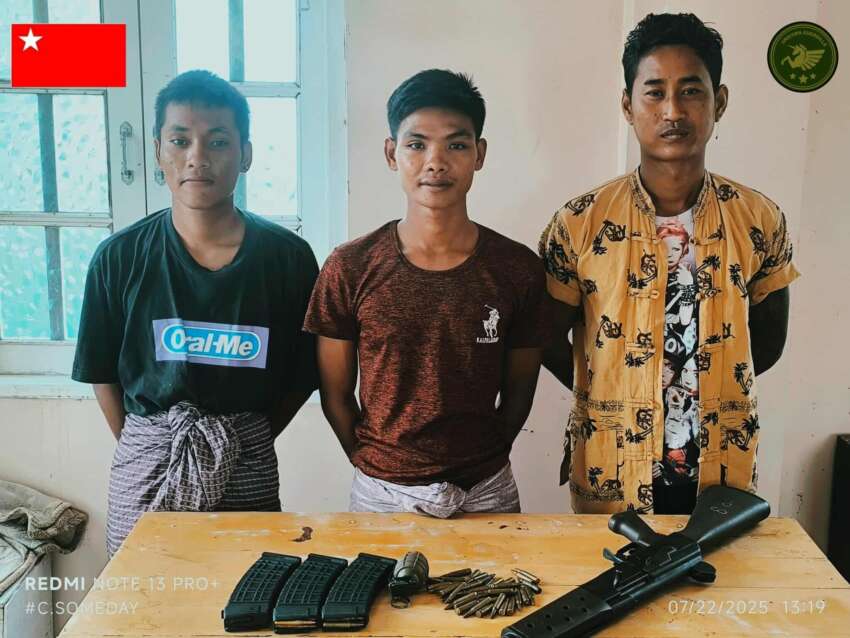
Three new military recruits from the terrorist military forces conducting operations in the Mingun region of Sagaing Division have defected to the Unicorn Guerrilla Force (UGF) with one firearm. This incident, which occurred on July 22, represents another example of the military’s forced recruitment practices and brutal treatment of servicemen. The defecting soldiers were from training batches 8 and 10, who were initially captured as porters by the terrorist military council troops before being forcibly conscripted into the army.
Among the three defectors, only one was able to bring weapons and ammunition, while the other two were unable to do so due to various circumstances. According to the UGF, the terrorist military routinely uses new recruits as human shields, forcing them to march at the front lines during battles where they face the highest risk from landmines and enemy fire. During the second military operation in the Mingun region, the majority of casualties were these new recruits.
The UGF has emphasized that these new military recruits are consistently placed in the most dangerous positions during military operations. They are forced to lead advances into potentially mined areas and are used as human shields during combat situations. This tactical approach by the terrorist military has resulted in disproportionately high casualties among new recruits, particularly during the second military campaign in the Mingun region. The UGF has therefore urged all new recruits to seize any opportunity to escape with their weapons when possible.
The guerrilla force has issued a stark warning to new military recruits about the importance of escaping when opportunities arise. They have emphasized that hesitation due to fear could result in death during combat operations. These defections highlight the ongoing human rights violations and forced recruitment practices of the terrorist military council. The UGF continues to encourage other forcibly conscripted soldiers to defect when possible, emphasizing that their lives are at risk if they remain within the military’s ranks. This incident adds to the growing evidence of the military council’s oppressive practices and its treatment of forced recruits as expendable assets in their operations.



